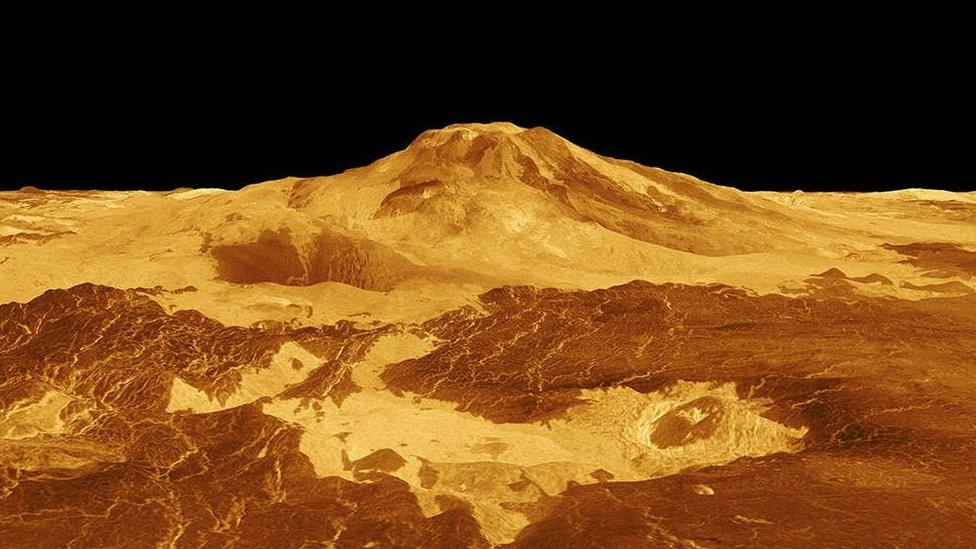Venus: Are volcanoes still erupting on the planet?
- Published
- comments

Venus is the closest planet to the Earth, and it seems like the planet - often called it's twin - could have even more in common with our own than previously thought.
A new study has shows evidence of volcanoes erupting on the surface of Venus, just like on Earth.
It's now hoped that Veritas, Nasa's new mission to Venus, can make discoveries and help researchers understand more about the planet.
By studying volcanoes experts can understand a lot about what is going on under the surface, as well as giving a better idea of whether the planet could be a place able to support life.
Veritas (Venus Emissivity, Radio Science, InSAR, Topography, and Spectroscopy), will map the planet's surface to understand its physical history and investigate how it developed so differently to Earth.
The new mission will use radar to create global 3D maps of Venus and capture details about its surface composition and gravitational field.
How did scientists find volcanoes on Venus??
Venus is the hottest planet in the solar system
It happened after scientists took a closer look at old images taken during Nasa's Magellan mission to Venus over 30 years ago.
The images showed a volcanic vent changing shape and increasing significantly in size in the eight months between February and October 1991.
The researchers initially wondered if they could have been caused by something else such as an earthquake or landslide, but from using models, they concluded that only an eruption could have caused the change.
The crater had steep sides and showed signs of drained lava down its exterior slopes.
How will the volcanoes help the Veritas mission to Venus?
The Big Question: Why do volcanoes actually erupt?
This is the first evidence experts have found of recent volcanic activity on the surface of Venus, according to the study detailing the findings, which was published in the journal Science.
Until now it had been known that there were volcanoes there, but not that they were still active.
Jennifer Whitten, associate deputy principal investigator of Veritas and assistant professor of Earth and environmental sciences at Tulane University in New Orleans said the Magellan mission had "teased so many possibilities," but she is hoping the new mission can unravel further secrets.
She said: "Now that we're very sure the planet experienced a volcanic eruption only 30 years ago, this is a small preview for the incredible discoveries Veritas will make."
- Published1 May
- Published16 April 2021
- Published16 February 2023
